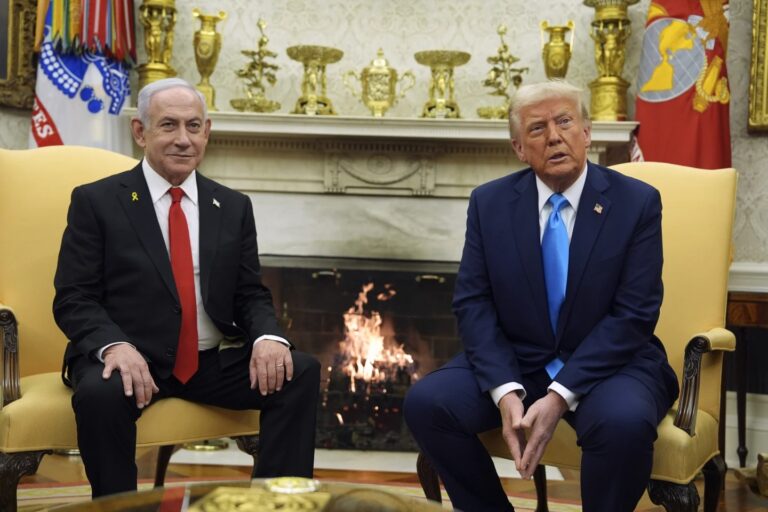 After Shas signed a coalition agreement on Monday evening 15 Iyar, the last party negotiating is Bayit Yehudi. Some Bayit Yehudi leaders feel that Prime Minister Binyamin Netanyahu was not an honest broker as he is offering ‘leftovers’ for Naftali Bennett and his colleagues. While this may or may not be the case, what is true is that if Bennett turns down offers to join the coalition, he will be blamed for the prime minister turning to the Labor party to form a government.
After Shas signed a coalition agreement on Monday evening 15 Iyar, the last party negotiating is Bayit Yehudi. Some Bayit Yehudi leaders feel that Prime Minister Binyamin Netanyahu was not an honest broker as he is offering ‘leftovers’ for Naftali Bennett and his colleagues. While this may or may not be the case, what is true is that if Bennett turns down offers to join the coalition, he will be blamed for the prime minister turning to the Labor party to form a government.
So what is Prime Minister Netanyahu offering Bennett? He is being given control of the Ministry of Education, inclusion in the Security Cabinet, the Ministry of Agriculture and Settlement Unit, the Ministry of Culture & Sport including control of the Toto lottery, a deputy defense minister post with control of the IDF Civil Administration throughout Yehuda & Shomron and chairmanship of the Knesset Foreign Affairs & Defense Committee. In addition, the Education Ministry budget will be increased by several hundred million shekels for dati leumi affiliated schools and institutions.
Likud officials are making it clear, that if Bennett rejects this generous offer, the alternative is Likud teaming with Labor.
NRG reports that after Foreign Minister Avigdor Lieberman announced he will not be entering the coalition, Naftali Bennett has renewed his demand to become Foreign Minister. It is explained this is because the prime minister gave the Ministry of Religious Services to Shas and Bayit Yehudi officials are furious. It appears he has frozen negotiations with Likud until PM Netanyahu responds to his demand for the senior cabinet post. Likud officials heading the negotiations warn Bennett that with the negotiating clock winding down, with a deadline this Wednesday, 17 Iyar, his refusal to move ahead in the talks will compel the prime minister to form a government with Labor instead of a right-wing government with Bayit Yehudi.
(YWN – Israel Desk, Jerusalem)











7 Responses
Why corrupt Lieberman any more than Bennet for forien minister? Bennet has more seats plus a better english. Dirty little secret. There is one thing holding back Bennet from getting it. his kippa. although not exactly as big as Litzman’s it still doesnt ‘past” for a kippa wearer to be israel’s top diplomat. Period.
Bennett deserves to be FM or minister of defence
Go on Bennett – we wish you the best
Bayit Yehudi are the only party with absolutely clear red lines
NO Division of the land.
AM YISRAEL TORAT YISRAEL ERETZ YISRAEL – the true torchbearers of Rabbi Akivas legacy
With Lieberman out, the remaining 61 MK coalition is likely doomed to a short life. So in the end it may hardly matter what Netanyahu gives HaBayit HaYehudi – they may not retain it long enough to make any real difference.
We would probably would sleep sounder with Bennet in Foreign than in Education.
The religious think that his kippah as incongruous as the rest of the world. FM isn’t such a big deal. Its not really comparable to secretary of state in America.
Yagel: It appears to me that the only thing that the “wider” coalition of 68 seats with Lieberman does, is keep UTJ in check, because they’re the only ones in the government who have six seats or less. (Any other party can threaten to fell the coalition because without them there would not be 61.) But UTJ is a lot easier to please than Lieberman, and for anything really serious they have Shas on board as well. So I don’t really understand this whole fuss about the 68 vs. 61.
#6- The issue is that with such a small majority the coalition is dependent not only on the discipline of all its member parties but on the discipline of each and every MK. Let’s take an example that is near to the hearts of YWN readers: the repeal of the draft law passed by the outgoing Knesset. The Likud promised UTJ that the coalition will repeal the law. But there are many Likud, Kulanu and B”Y MKs who are personally and ideologically opposed to this. In a large coalition they might have absented themselves from the vote without any consequences – the coalition would still have enough MKs to prevail. And, knowing this, there would be little pressure on them to actively oppose the coalition. But with 61 MKs the compliance of each and every MK becomes crucial and each MK knows this and is under pressure to oppose the coalition when ideology and other considerations dictate. In a fairly homogenous coalition this may be manageable but in an ideologically divided coalition, as the proposed coalition is, that intends to make significant national reforms, as the proposed coalition does – holding the entire coalition together becomes daunting and ultimately impossible.